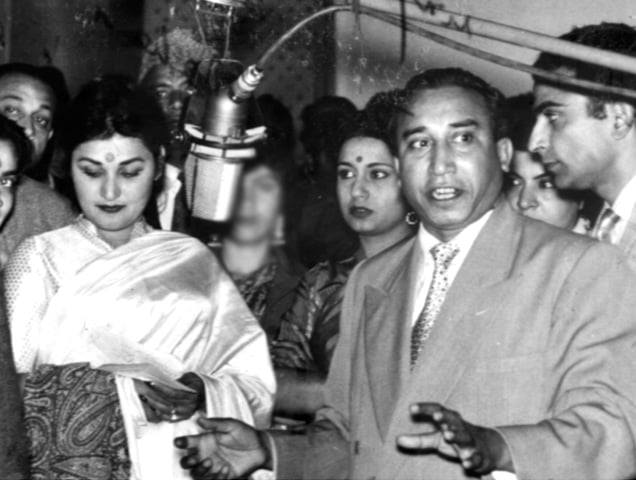Great composer of the Indo-Pak subcontinent, Abdur Rasheed Attre, who is widely known as Rasheed Attre, was also a highly acclaimed singer-musician in his time.
Early Life
Rasheed Attre was born on February 15, 1919, in Amritsar, Punjab. His father, Khushi Mohammad, was a singer and musician, which exposed Rasheed to music from a young age. Rasheed’s musical training began under his father’s guidance. He later studied with Khan Sahib Ashfaq Husain, a respected musician of the time. Rasheed quickly mastered several instruments, with a particular expertise in the tabla. His dedication to learning music was evident early on.
Early Career of Rasheed Attre
Rasheed Attre’s entry into the film industry came in the early 1940s. Before partition, there were three major film centers Lahore, Mumbai, and Kolkata, in india. Chennai and a few other centers were still in the developing phase. He started his career with Mahishori Pictures in Lahore, a hub for pre-partition Indian cinema. For the first time in 1942, Rasheed independently composed songs for the film Mamta, directed by Hafiz Jee and starring Kalawati. He then worked on “Pagli (1943),” where he composed two songs, while Ustaad Jhanday Khan composed the rest.
This debut marked his initial step into film music. In 1944, Rasheed collaborated with the musician Ameer Ali. Together they compose music to the Najam Naqvi directed movie “Pana,” starring Geeta Nizami, popularly known as Mohani and P.J. Raj. Rasheed Attre composed songs for Naueek Chitar Pat’s production, “Kamra No. 9.”
Success In India

Rasheed and his co-musician, Pandit Amar Nath, had immortalized the songs for the Pancholi Art Pictures production, “Shireen Farhaad (1945),” directed by Paro Hala Dutt, starring Raagni, Jayant (father of famous Indian actor Amjad Khan)
Attre composed the songs for the Bombay talkies’ first Muslim social film Nateeja (1947) starring Shamim Banu, Yaqoob, Khaleel and directed by Najam Naqvi. Its superhit ghazal “Kahan mein aur kahan deen-e-haram ki kashmakash,” “Nakhshab, kis kay naqsh-e- pa per rakh diya ghabra kay sar mein nay” is popular to date.
He also gave music to Roop Kumar Shori ‘s film Paaro staring Mohni and Randheer and film director Shahid Lateef’s movie, Shikayat (1948).
After the partition of India in 1947, Rasheed moved to Lahore, which became the center of the newly formed Pakistani film industry. He continued composing for films, establishing himself as a pioneer in Pakistani cinema.
Rasheed Attre In Pakistan
The first Pakistani film for which Rasheed Attre lent his music was director Masood Pervez’s Beli (1950). In the beginning, Noor Jehan decided to sing only for those movies in which she also acted. Therefore, Rasheed Attre used Zubeda Khanum as a playback singer.
Munir Hussain was among the favourite singers of Attre, as Mehdi Hasan had not entered the Pakistani film scene. A song in Raag Bhageshri. “Qarar Lootney Walay,” in the movie “Saat Laakh,” gave a boost to Munir’s film career. Faiz Ahmed Faiz’s nazm Nisar mein teri galiyon pay for the movie Shaheed, was another hit by Munir. Munir Hussain also sang Dilla thehr ja for Mukhra, also sung separately by Zubeda Khanum.
Such was the strength of Attre’s compositions that two of his songs for the movie Wa’ada, sung by an unknown Sharafat Ali, are still listened to with interest after more than 60 years. They are; Jab teray shehr se guzarta hun and Bar bar barsein moray nain.
Faiz’s ghazal “Mujh se pehli si muhabbat,” from the movie “Qaidi,” is a hallmark in Noor Jehan’s career as a playback singer. This song has been popular all over the world since more than five decades.
Rasheed Attre on IMDB














Leave feedback about this